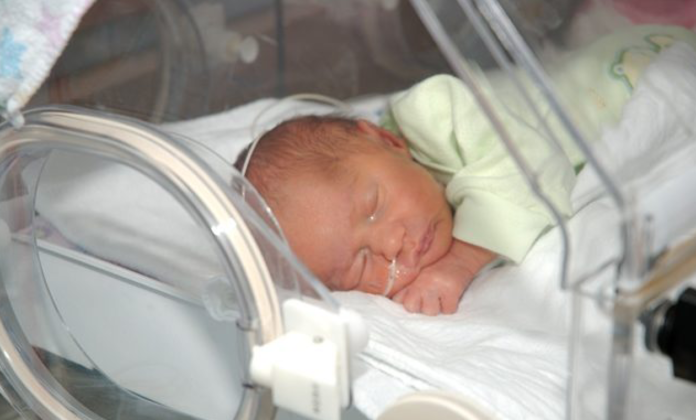The Neonatal Intensive Care Unit (NICU) at London Health Sciences Centre (LHSC) is embracing Evidence-Based Practice for Improving Quality (EPIQ), a national multi-disciplinary collaboration that facilitates the implementation of evidence-based practice changes to improve neonatal outcomes.
“EPIQ is a systematic approach whose goal is to use evidence from published literature to determine best practice,” says Gail Fernandes, a nurse practitioner in LHSC’s, NICU. “We collaborate with 30 NICU’s in the EPIQ network across Canada to develop and implement practice bundles to improve patient outcomes.” Fernandes adds that individual site data is compared to the national data. This helps to drive each hospital site to review their own interventions utilized to target specific outcomes.
To effectively move these best practices forward, a full-time EPIQ facilitator role was created at LHSC, and supported by Children’s Health Foundation for three years. The EPIQ facilitator has a full time focus on improving outcomes, utilizing the EPIQ platform to align practice with nationally endorsed practice bundles. “A registered nurse and neonatal registered respiratory therapist were chosen to share the position as their roles complement each other extremely well in addressing the target outcomes,” explains Fernandes. The EPIQ facilitators work with a multidisciplinary steering committee to develop, implement and evaluate evidence-based practices locally in order to continuously improve care.
For 2014-2016, LHSC was tasked with decreasing incidents of bronchopulmonary dysplasia (BPD), a chronic lung disorder, and necrotizing enterocolitis (NEC), a bowel condition, by the national EPIQ steering committee.
Decreasing incidents of BPD was achieved through a number of initiatives. By implementing a bed huddle with a pre-delivery “pause” where team roles are clearly defined, there have been documented benefits for neonatal resuscitation. This includes ensuring the neonatal team communicates early with the obstetrical team regarding delayed cord clamping and cord blood draws. Drawing initial labs from the umbilical cord at delivery has been implemented as a practice change to limit pain for baby and to decrease need for handling.
EPIQ has a national goal of identifying the degree of BPD by creating categories of severity defined by the respiratory support required at 36 weeks. New guidelines for early extubation favouring the prolonged use of CPAP have been implemented which are thought to be improving the severity of BPD outcomes. Although statistical analysis will occur after the severity definitions are clarified, it is strongly believed that these practice changes are demonstrating improvement in outcomes. BPD will continue to be an area of focus moving forward.
Revised feeding guidelines to reduce incidents of NEC have been credited with a decrease in the number of days neonates require intravenous therapy and a decreased need for central lines—resulting in a decreased risk of hospital-acquired infection. LHSC’s NICU has seen a reduction in the incidence of Necrotizing enterocolitis in the less that 33 week gestation population (from 7 cases in 2014 to zero cases so far this year), which they contribute to their expanded donor milk guidelines and the use of probiotics.
To decrease the incidence of BPD and NEC, the EPIQ committee conducted chart reviews and audits to assess compliance with implemented practice changes, and to identify additional opportunities for improvement. Quality assurance rounds are completed monthly with the EPIQ facilitator completing the audit and acting as a lead for the multidisciplinary team. This has created a culture of reflective practice that expects care management to be evidenced based.
The committee has also recognized the stress on the family of having a preterm infant and the EPIQ facilitators have focused their efforts on improved family centered care. Audits reinforced the need for earlier kangaroo care (holding infant skin-to-skin) and bonding experiences.
“Our efforts have resulted in a change in culture where the frequent comment is ‘you better chart it as it will be audited!’” says Fernandes. “We see this as extremely positive for safe practice, increased accountability, and better outcomes. Front-line engagement has been a key to the success of the changes introduced by the EPIQ facilitators and our team remains challenged by the motto for EPIQ which is ‘Drive to Zero.’”




